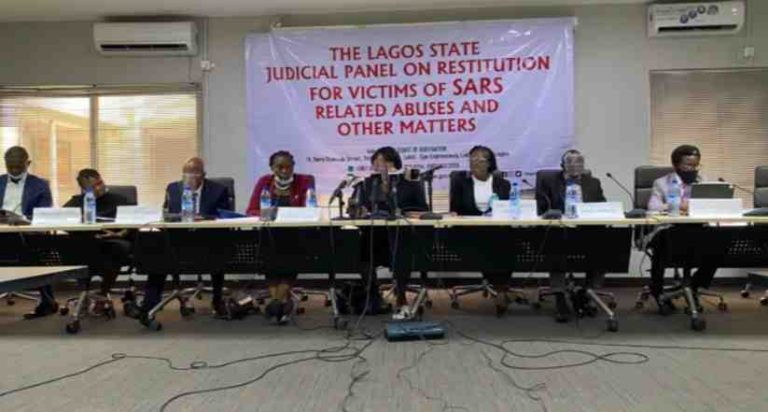Daily Law Tips (Tip 687) by Onyekachi Umah, Esq., LL.M, ACIArb(UK)
Introduction:
From the constitution of Nigeria, among the fundamental human rights in Nigeria is the right to freedom from discrimination. By this right, a citizen of Nigeria cannot be discriminated against because of the person’s sex, birth, tribe, religious or political beliefs. This right dose not apply to all persons in Nigeria, rather it applies to only citizens of Nigeria.
This work will examine whether the right to freedom from discrimination applies to private sector (non-governmental outfits) and private persons. It will focus on the nature, implication and extent of the right to freedom from discrimination, where a violator is a non-governmental (privately owned) outfit.
Extent of the Right to Freedom from Discrimination:
Fundamental human rights of persons in Nigeria are contained in the Constitution of Nigeria. Some of the rights apply to only Nigerian citizens while some apply to Nigerians and foreigners in Nigeria. Also, some fundamental human rights apply to only human being and some apply to both human beings and corporate beings (companies and registered organizations). There is no better way to understand the right to freedom from discrimination, than to listen to the unquestionable words of the Supreme Court of Nigeria, on this issue.
The Supreme Court of Nigeria is the highest court in Nigeria. The decision of the Supreme Court of Nigeria is final on any issue, including issues of fundamental human rights. So, to better understand the nature, implication and extent of the right to freedom from discrimination, I am relying on the words of a Justice of the Supreme Court of Nigeria (Justice OLABODE RHODES-VIVOUR). His enlightening words are below:
”Section 42 of the Constitution provides that: “42(1). A citizen of Nigeria of a particular community, ethnic group, place of origin, sex religion or political opinion shall not, by reason only that he is such a person – (a) be subjected either expressly by, or in the practical application of, any law in force in Nigeria or any executive or administrative action of the government, to disabilities or restrictions to which citizens of Nigeria of other communities, ethnic groups, place of origin, sex religions or political opinions are not made subject; or (b) be accorded either expressly by, or in the practical application of, any law in force in Nigeria or any such executive or administrative action, any privilege or advantage that is not accorded to citizens of Nigeria of other communities, ethnic groups, places of origin, sex, religions or political opinions. 2. No citizen of Nigeria shall be subjected to any disability or deprivation merely by reason of the circumstances of his birth. A liberal approach must be adopted when interpreting the Constitution and especially the fundamental rights provisions. Section 42 of the Constitution guarantees to every citizen of Nigeria freedom from discrimination on the basis of belonging to a particular community, ethnic group, place of origin, sex, religion or political opinion. The discrimination complained about must emanate from a law in force in Nigeria, or any executive or administrative action of the Government. This includes laws made by the legislative Houses and legislation made by Local Governments, and this includes policy statements. The rights are enforceable against the state, and not against individuals. See Uzoukwu v. Ezeonu 11 (1991) 6 NWLR pt. 200 p. 708.” Per, OLABODE RHODES-VIVOUR ,J.S.C ( Pp. 18-19, paras. A-C )
Conclusion:
It is not uncommon to find private outfits; companies, groups, persons and associations, without any government affiliation, being accused of discrimination. Well, although such private outfits and their conducts may be truly discriminatory, can they be sued (dragged to court) for such? The answer to this is in the negative. A Nigerian can only sue government or a government owned outfit for discrimination but cannot a private (non-governmental) outfit for discrimination. By the way, a foreigner cannot sue government or non-governmental outfit for discrimination, because right to freedom from discrimination is exclusively for Nigerians.
The Right from freedom of discrimination is for all Nigerians but must be observed and obeyed by only government institutions/outfits and their agents. This will include any arm of government and government owned outfit and their workers, like schools, banks, companies, groups, ministries, departments, agencies or programs. On the other hand, a non-governmental (privately owned) outfit, including schools, banks, companies, groups, ministries, departments, agencies or programs, even when discriminatory, cannot be sued for violation of right to freedom from discrimination.
In summary, any complaint on violation of right to freedom from discrimination must be based on a discriminatory law or a discriminatory policy or action of any government, whether federal, state or local government or their formations/agencies. However, there are severally other legal remedies available to persons that may suffer discrimination from any non-governmental (privately owned) outfits.
My authorities are:
- Section 42 of the Constitution of Nigeria, 1999.
- The judgment of the Supreme Court of Nigeria in the case LAFIA LOCAL GOVT v. EXECUTIVE GOVT NASARAWA STATE & ORS (2012) LPELR-20602(SC).
- Onyekachi Umah, “Human Rights That Can Never Be Restricted Even In War, Pandemic or State of Emergency (Daily Law Tips [Tip 539]) <https://learnnigerianlaws.com/human-rights-that-can-never-be-restricted-even-in-war-pandemic-or-state-of-emergency-daily-law-tips-tip-539-by-onyekachi-umah-esq-llm-aciarbuk/> accessed 18 October 2020.
- Onyekachi Umah, “Does The President/Governors Have Powers To Lockdown Any Part Of Nigeria Or Restrict Human Rights?” (Daily Law Tips [Tip 537]) <https://learnnigerianlaws.com/does-the-president-governors-have-powers-to-lockdown-any-part-of-nigeria-or-restrict-human-rights-daily-law-tips-tip-537-by-onyekachi-umah-esq-llm-aciarbuk/ > accessed 18 October 2020.
#SabiLaw
#DailyLawTips
#SabiBusinessLaw
#SabiElectionLaws
#SabiHumanRights
#SabiLawOnBeatFm
#SabiLawLectureSeries
#CriminalJusticeMonday
#SabiLawVideoChallenge
Speak with the writer, ask questions or make inquiries on this topic or any other via [email protected] or [email protected] or +2348037665878 (whatsapp). To receive our free Daily Law Tips, follow our Facebook Page:@LearnNigerianLaws, Instagram: @LearnNigerianLaws and Twitter: @LearnNigeriaLaw
Please share this publication for free till it gets to those that need it most. Save a Nigerian today! NOTE: Sharing, modifying or publishing this publication without giving credit to Onyekachi Umah, Esq. and “LearnNigerianLaws.com” is a criminal breach of copyright and will be prosecuted.
This publication is the writer’s view not a legal advice and does not create any form of relationship. You may reach the writer for more information.
Powered by www.LearnNigerianLaws.com {A Free Law Awareness Program of Sabi Law Foundation, supported by the law firm of Bezaleel Chambers International (BCI).}














